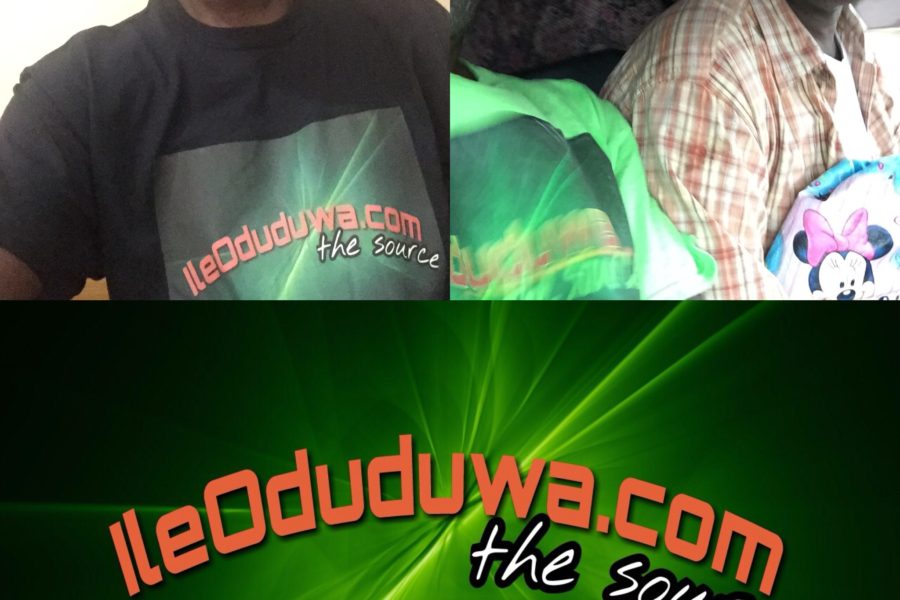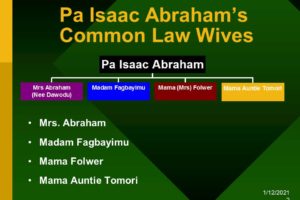
Art Work near the Freedom Park, Lagos State
Lagos, Lagos State, Nigeria celebrating 50 year with all Lagosians, Nigerians, and all their visitors from all over the world to withnessas the crown jewel of the celebration the Adamu Orisa Play also Know as the Eyo festival.
As a descendant of Oduduwa (a Yoruba man) It is incumbent on us to continue to expose and share this great culture to the world and bridge the generation gap among our younger adults to embrace their culture and language.
As we ennoble our Yoruba culture IleOduduwa the source blog and IleOduduwa.com will continue to provide educational and entertainment contents to our subscribers, followers all over the world.
Ague-able this is a list of States in Nigeria that is located in Yoruba land.
Oyo, Ogun, Kwara, Lagos, Osun, Ondo, Ekiti, and possibly Kogi State. There are three main ethnic groups and languages in Kogi and one being the Okun (a Yoruba group).
IleOduduwa the Source is in Lagos, Nigeria celebrating Lagos State at Fifty.
Lagos is a port which originated on islands separated by creeks, such as Lagos Island, fringing the southwest mouth of Lagos Lagoon while protected from the Atlantic Ocean by barrier islands and long sand spits such as Bar Beach, which stretch up to 100 kilometres (62 miles) east and west of the mouth. From the beginning, Lagos has expanded on the mainland west of the lagoon and the coalescing, included Ikeja (which is the capital of Lagos State) and Agege, now reaches more than 40 kilometres (25 miles) north-west of Lagos Island. Some suburbs include Ikorodu, Epe and Badagry, and more local councils have recently been created, bringing the total number of local governments in Lagos to fifty seven
History
Lagos was originally inhabited by the Awori subgroup of the Yoruba people. Under the leadership of the Oloye Olofin, the Awori moved to an island now called Iddo and then to the larger Lagos Island. In the 15th century, the Awori settlement was conquered by the Benin Empire and the island became a Benin war-camp called “Eko” under Oba Orhogba, the Oba of Benin at the time. The Yoruba still use the name Eko to refer to Lagos.
Lagos which means “lakes”, was a name given to the settlement by the Portuguese.
The present-day Lagos state has a high percentage of Awori, who migrated to the area from Isheri along the Ogun river. Throughout history, it was home to a number of warring ethnic groups who had settled in the area. Following its early settlement by the Awori nobility, and its conquest by the Bini warlords of Benin, the state first came to the attention of the Portuguese in the 15th century.
Portuguese explorer Rui de Sequeira visited the area in 1472, naming the area around the city Lago de Curamo; indeed the present name is Portuguese for “lakes”. Another explanation is that Lagos was named for Lagos, Portugal—a maritime town which, at the time, was the main centre of Portuguese expeditions down the African coast, and whose own name is derived from the Latin word Lacobriga.
Lagos was formally annexed as the British Lagos Colony in 1861. This had the dual effect of crushing the slave trade and establishing British control over palm and other trades. The remainder of modern-day Nigeria was seized in 1887, and when the Colony and Protectorate of Nigeria was established in 1914, Lagos was declared its capital, continuing as such after the country’s independence from Britain in 1960. Along with migrants from all over Nigeria and other West African nations were the returnee ex-slaves known as Creoles, who came from Freetown, Sierra Leone, Brazil and the West Indies to Lagos. The Creoles contributed to Lagos’ modernisation and their knowledge of Portuguese architecturecan still be seen from the architecture on Lagos Island.
Lagos experienced rapid growth throughout the 1960s and 1970s as a result of Nigeria’s economic boom prior to the Nigerian Civil War. Lagos was the capital of Nigeria from 1914 up to 1991. The city was stripped of its status when the Federal Capital Territory was established at the purpose-built city of Abuja. On 14 November 1991, the Presidency and other federal government functions were finally relocated to the new capital city of Abuja.
Lagos Mainland
Most of the population lives on the mainland, and most industries are located there too. Lagos is known for its music and night life, which used to be located in areas around Yaba and Surulere. In recent years more night clubs have sprung up on the island, making the island, particularly Victoria Island, the main nightlife attraction. Lagos Mainland districts include Ebute-Meta, Surulere, Yaba (location of the University of Lagos) and Ikeja, site of Murtala Muhammed International Airport and capital of Lagos State.
Greater Lagos includes Mushin, Maryland, Somolu, Oshodi, Oworonsoki, Isolo, Ikotun, Agege, Iju Ishaga, Egbeda, Ketu, Bariga, Ipaja, Ajah and Ejigbo.
The city of Lagos is the main city of the south-western part of Nigeria. Some rivers, like Badagry Creek, flow parallel to the coast for some distance before exiting through the sand bars to the sea. The two major urban islands of Lagos in Lagos Lagoon are Lagos Island and Victoria Island.
These islands are separated from the mainland by the main channel draining the lagoon into the Atlantic Ocean, which forms Lagos Harbour. The islands are separated from each other by creeks of varying sizes and are connected to Lagos Island by bridges. The smaller sections of some creeks have been sand filled and built over.
Lagos Island
Lagos Island contains a central business district.This district is characterised by high-rise buildings. The island also contains many of the city’s largest wholesale marketplaces (such as the popular Idumota and Balogun markets). It also has the National Museum of Nigeria, the Central Mosque, the Glover Memorial Hall, Christ’s Church Cathedral (CMS), and the Oba Palace.Though formerly in a derelict condition, Lagos Island’s Tinubu Square is a site of historical importance; it was here that the Amalgamation Ceremony that unified the North and South protectorate to form Nigeria took place in 1914.
Ikoyi
Ikoyi is situated on the eastern half of Lagos Island and joined to it by a landfill.Ikoyi is also connected to Victoria Island by Falomo bridge, which carries a main road over Five Cowrie creek. Ikoyi housed the headquarters of the federal government of Nigeria and other buildings owned by the government, including the old federal secretariat complex. The complex today is on reestablishment.
In Ikoyi there are military and police barracks, a top-security prison and a federal high court of Nigeria. Ikoyi also has a number of hotels, night clubs, a recreational park and one of Africa’s largest golf courses. Originally a middle class neighbourhood, in recent years, it has become a fashionable residential enclave for the upper middle class to the upper class. There are also commercial activities in Ikoyi which is spotted in increasing number of offices, banks and shopping complexes. The commercial section is concentrated in the South-West.
Victoria Island
Victoria Island (Nigeria)
Victoria Island with its annexe is situated to the south of Lagos Island. It has expensive real estate properties and for that reason, many new luxury condos and apartments are blooming up everywhere. Along with Ikoyi, Victoria Island occupies a major area in the suburbs of Lagos which boasts of several sizeable shopping districts. On its sea shore along the Atlantic front, there is environmentally reconstructed Bar Beach.
Eko Atlantic
Eko Atlantic or Eko Atlantic City is a planned district of Lagos, Nigeria, being constructed on land reclaimed from the Atlantic Ocean.It is located on Lagos’ Bar Beach. Upon completion, the new island which is still under development is anticipating 400,000 residents and a daily flow of 250,000 commuters. The development will also have a positive environmental impact; its purpose is to stop the erosion of the Lagos coastline.The Eko Atlantic City project received global recognition in 2009, as the Lagos State government and its private sector partners on the Project, South Energyx, received the Clinton Global lnitiative Commitment Certificate.
Iddo
Across the main channel of the lagoon from Lagos Island, there is a smaller settlement called Iddo. Iddo is also a railroad terminus and it is situated on the mainland. It is now connected to the mainland like a peninsula.
Three major bridges join the island to the mainland. They are the Carter Bridge which start from Iddo, the Eko Bridge (formerly called the Second Mainland Bridge) and the Third Mainland Bridge, which passes through densely populated mainland suburbs to the Lagos Lagoon.
Banana Island
Banana Island, is an area of Ikoyi, Lagos, Nigeria, 8.6 kilometres east of Tafawa Balewa Square. Part of the Lagos Local Government Area of Eti-Osa in Central Lagos, it is known for its wealthy, multi-cultural community and has some of the most expensive real estate in Nigeria. Banana Island has one of the highest density of millionaires within its boundaries.
The banana shaped island is approximately 1,630,000 square meters in size and it has been zoned into 536 plots consisting of 100 closes, which serve to enhance the banana shape of the island. The island is so designed to enhance the historically residential nature of Ikoyi. Banana Island as been referred as the most expensive neighborhood in Nigeria.




 IleOduduwa.com the Source is ennobling this great culture and language of the Yoruba people is a worthy endeavor to undertake and continue to share with the world it’s rich history, heritage, traditions, culture, and language that is spoken by sixty million people around the world.
IleOduduwa.com the Source is ennobling this great culture and language of the Yoruba people is a worthy endeavor to undertake and continue to share with the world it’s rich history, heritage, traditions, culture, and language that is spoken by sixty million people around the world.